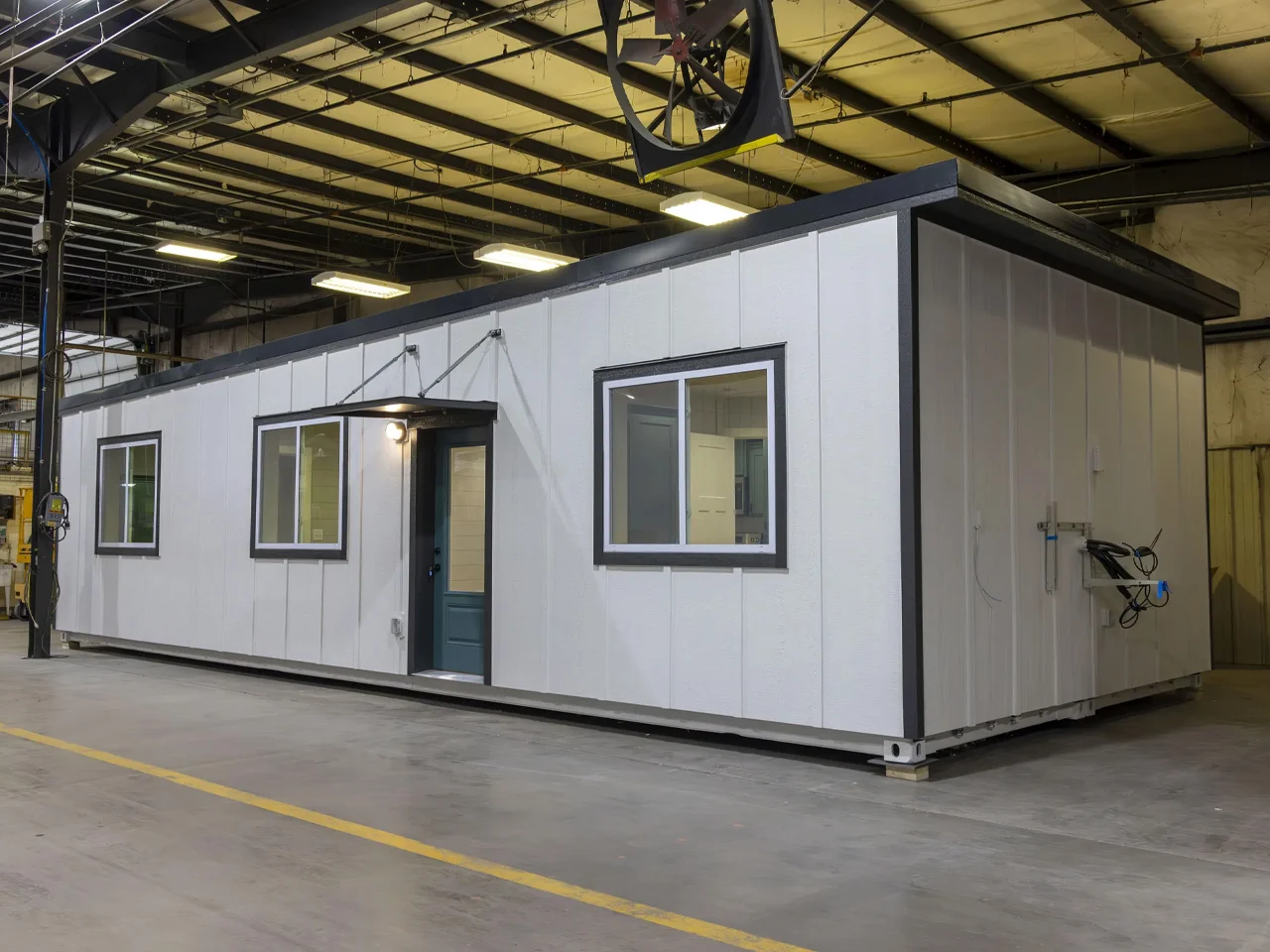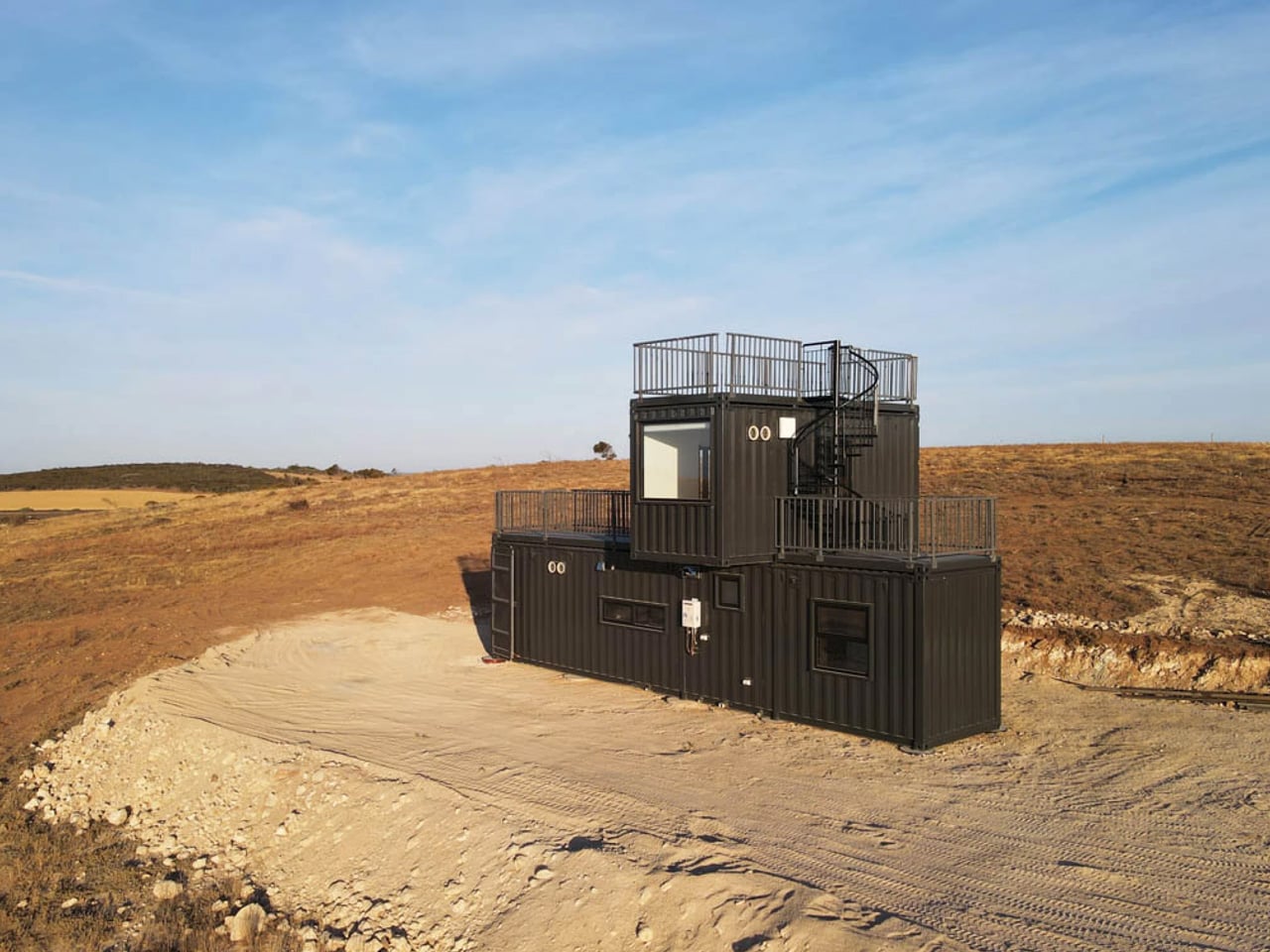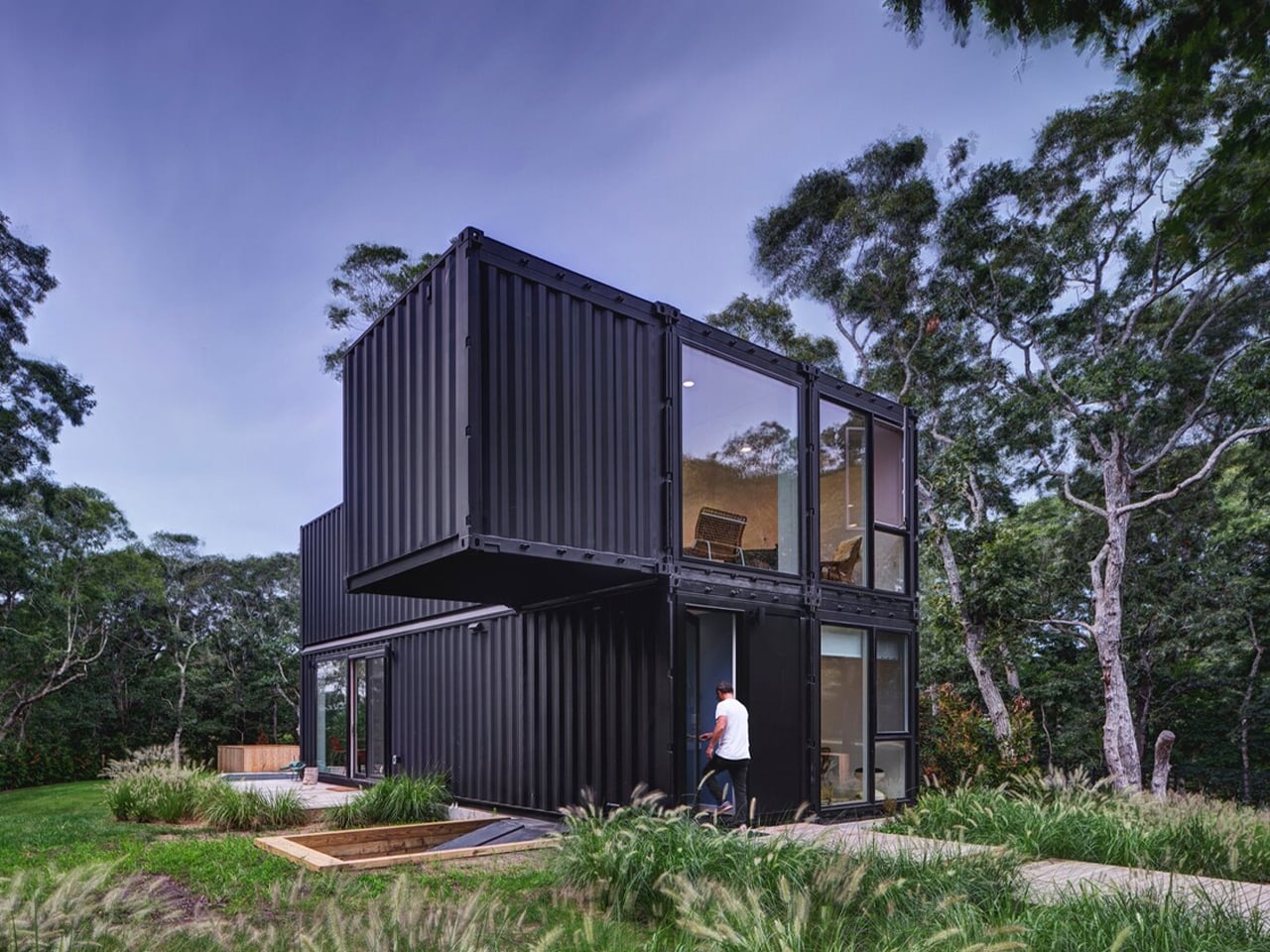#modular-housing
#modular-housing
[ follow ]
fromwww.housingwire.com
2 weeks agoFlorida-based modular builder launches expandable housing model
West Palm Beach, Fla.-based Mesocore Modular Homes is introducing an expandable modular housing model aimed at improving affordability and disaster relief, an important issue in a state prone to devastating hurricanes. Positioned as an affordable housing solution for both homebuyers and city leaders, planners, emergency management professionals, and resilience experts focused on addressing climate-driven risks, Mesocore's expandable home can start as a 420-square-foot, one-bedroom, one-bath home with a private bedroom, a full kitchen, a living area, and a built-in desk.
Real estate
Design
fromYanko Design - Modern Industrial Design News
3 months agoConcept House With 5 Segments Rotates to Catch Sun and Wind - Yanko Design
A kinetic, modular house with five rotating curved segments adapts automatically to sunlight, wind, rain, and occupant preferences for passive climate control and self-sufficiency.
Real estate
fromTravel + Leisure
3 months agoThis Amazon Solar-Powered Tiny Home Has 2 Bedrooms, Modern Finishes, and Tons of Natural Light-Under $11K
A 20-by-20-foot solar-powered modular tiny home under $11,000 offers compact, customizable, transportable, energy-self-sufficient living with two bedrooms and full amenities.
fromwww.independent.co.uk
3 months agoHome Office could move migrants into pop-up buildings to end hotel crisis
From reproductive rights to climate change to Big Tech, The Independent is on the ground when the story is developing. Whether it's investigating the financials of Elon Musk's pro-Trump PAC or producing our latest documentary, 'The A Word', which shines a light on the American women fighting for reproductive rights, we know how important it is to parse out the facts from the messaging.
UK politics
fromFast Company
4 months agoMaui's new temporary homes show what better disaster housing can look like
Built to meet local and international building codes, they're very different from the cheap, toxic trailers that FEMA deployed 20 years ago, when Hurricane Katrina displaced hundreds of thousands of people. Some of those trailers had formaldehyde levels that were 75 times greater than safe levels. They were poorly insulated and never meant for long-term housing, but some families were stuck in them for years.
Real estate
fromwww.housingwire.com
4 months agoHUD Innovative Housing Showcase begins Saturday
This year's exhibits will include entire model homes ranging from manufactured and modular to 3D-printed designs developed by companies from across the U.S. Guardian Structural Technologies (GST) a Cleveland-based innovator in energy-efficient housing is showcasting its award-winning SHIELD Panel system. GST's galvanized steel and EPS foam panels speed construction while boosting energy efficiency, with more than 1,400 buildings completed nationwide. A finalist in Cleveland's initiative to deliver 5,000 affordable homes, GST is piloting modular housing with Habitat for Humanity.
Real estate
fromPadailypost
5 months agoBoarded-up hotel eyes plan to put modular homes on the property
The owner of a boarded-up hotel in Palo Alto that was converted to an illegal dorm for Stanford students has applied to put 22 modular homes on the property. Attorney Brian O'Neill filed the application on Aug. 27 on owner Sophia Huang's behalf. He invoked state housing laws that give the project an easier path to approval. "Despite prior challenges, the applicant has continued to engage in good-faith discussions with city personnel in recent years in an effort to develop a plan responsive to the city's goals and housing obligations," O'Neill said in a letter to Planning Director Jonathan Lait.
California
London politics
fromwww.standard.co.uk
5 months agoAre modular homes the solution to London's temporary housing crisis?
London faces a major homelessness crisis; City Hall approved factory-built, relocatable modular homes as temporary accommodation, with the first units delivered in Havering this year.
Design
fromYanko Design - Modern Industrial Design News
5 months agoIndonesia's Futuristic Prefab Home Is Ready for Anything: From Floods To Unannounced Guests - Yanko Design
The Drop Pod is a modular, elevated, rapidly assembled housing unit adaptable to local conditions, resilient to flooding, and scalable for clusters or disaster relief.
fromYanko Design - Modern Industrial Design News
5 months agoPrefab Perfected: A Fresh Take On Modular Living In Brazil - Yanko Design
The Modular BV system redefines prefabricated housing, merging engineered precision with climate-smart design, producing homes that adapt seamlessly to their environments.
Renovation
Toronto startup
fromwww.cbc.ca
9 months agoWillowdale housing project for homeless seniors underway after years of community pushback, delays | CBC News
The modular housing project for seniors in Toronto's Willowdale is finally underway after delays, aiming to provide 59 supportive units.
The project addresses homelessness among seniors by offering affordable living with necessary support services.
[ Load more ]









